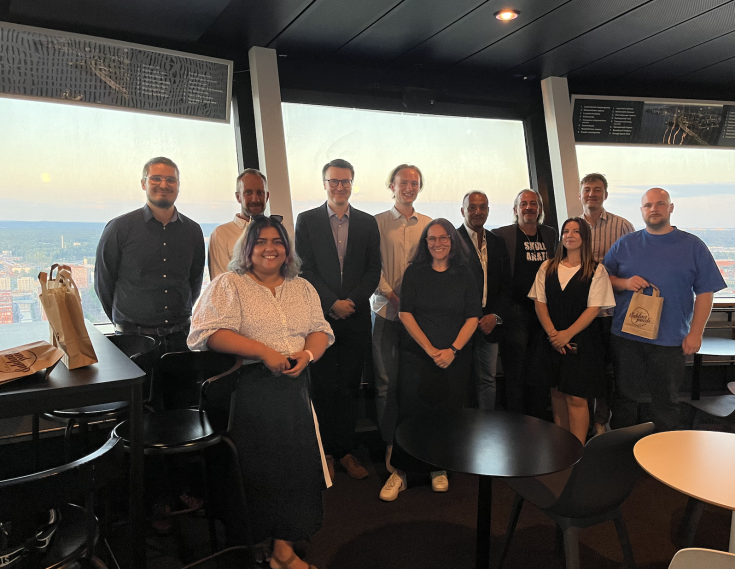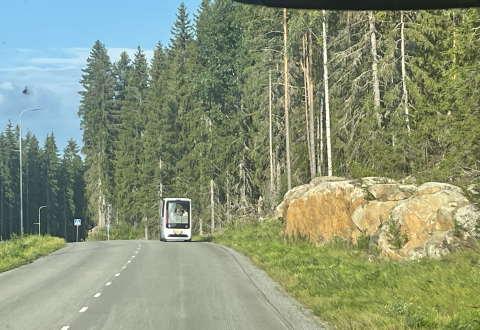Insights into Automated Transport Systems in Tampere

On the 8th and 9th of August 2024, Tampere University’s Transport Research Center Verne hosted the visiting partners Metropolitan City of Cagliari (Italy) and the Municipal Enterprise „Susisiekimo paslaugos“ (Lithuania) for a Staff Exchange within EMBRACER. The main goals of this exchange were to foster knowledge sharing and collaborative learning on automated transport systems, with a particular focus on the implementation and perception of autonomous vehicles (AVs) in urban environments. The event was held at Tampere University's Hervanta Campus, offering a platform for stakeholders to engage in discussions, presentations, and site visits related to the ongoing and future AV projects.
Key participants in the event included representatives from Tampere University’s Transport Research Center Verne, government/ city officials from Tampere, Cagliari and Vilnius, and experts in automated transport systems from Remoted Oy. The exact number of participants were 15. The visiting delegation comprised experts from the Metropolitan City of Cagliari and the Municipal Enterprise „Susisiekimo paslaugos,“ who brought diverse experiences and insights into the challenges and opportunities of AV implementation.
The two-day event had a well-structured agenda, beginning with a welcome lunch at Ravintola Myllärit on the 8th of August. This was followed by presentations at Hervanta Campus, where topics such as the vision for automated transport by Nysse (Tampere Regional Transport service providers), AV service implementation roadmaps by Remoted Oy, and public perception and safety concerns of AVs by Tampere University’s Transport Research Center Verne were discussed. On the 9th of August, the participants engaged in study visits to ongoing AV projects in Lintuhytti and Lempäälä, which highlighted the practical aspects of AV operations in different settings. The sessions covered key themes such as safety, public perception, and the technical aspects of AV integration into urban transport networks.

Tampere University, the host of the event, shared extensive knowledge and research findings on sustainable transport systems and the specific challenges associated with AV deployment in Finland. The university’s Transport Research Center Verne showcased its ongoing projects, such as the Smart Rail initiative and various studies on the electrification and automation of transport. These insights were critical in demonstrating how Tampere was addressing the complexities of AV technology, including public acceptance, safety, and the necessary infrastructure adjustments. The host aimed to facilitate mutual learning through presentations, discussions, and on-site demonstrations, offering a comprehensive view of their progress and future plans in AV technology.
The visiting delegation from Italy and Lithuania showed great curiosity, actively seeking knowledge about future AV deployment in their regions. They focused on best practices, challenges, and innovative strategies that could be adopted to ensure successful AV implementation in their cities. They shared insights and plans on the technical, regulatory, and societal aspects of AV implementation, contributing to the collective knowledge pool and exploring how the learnings from Tampere could be applied in their own cities. The visitors planned to enhance their ongoing projects and influence policymaking in their respective regions based on the knowledge gained from the exchange.
The expected outcomes of the Staff Exchange included the advancement of sustainable transport solutions through the shared expertise and experiences of all participants. The event was anticipated to foster potential collaborations and follow-up actions that could lead to improved AV systems in both Tampere and the visiting regions. By focusing on safety, public perception, and technical feasibility, the exchange aimed to contribute significantly to the development of more effective and accepted AV services across Europe.